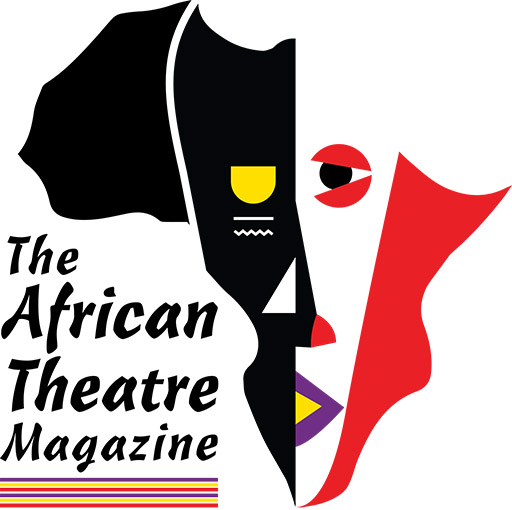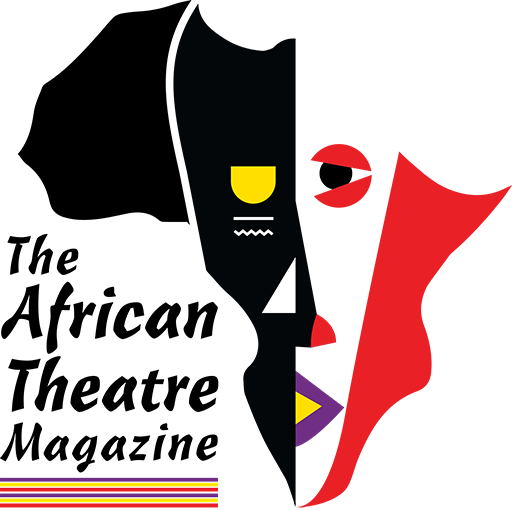My Koek is Moeg is a compelling, provocative, and complex monodrama dealing with sexual violence, femininity, exploitation, and societal expectation. The title roughly translates from Afrikaans to “My Cookie is Tired,” with “koek” referring to female genitalia and sets the tone for a play that uses humor and a dark narrative to explore serious issues.
The play, written by Dr Nashilongweshipwe Mushaandja, embodies the spirit of minimalistic and deeply impactful theater, focusing on one woman’s attempt to unpack broader societal issues, in a Namibian and Southern African context.
At its core, this production speaks to the exhaustion and pain experienced by women. The sole character, Poppie Plaatjies, explores these themes through her all too familiar trauma.
Mushaandja tells us he was inspired by the tragedies he saw happening around him.
“In university I worked as a research assistant and I used to attend a lot of feminist meetings where people would talk about feminism and gendered violence on campus,” he shares. “I was learning a lot about how the smallest things objectify women and how they’re kind of caught up in this web of patriarchy, which is kept together by violence.”
See also: Dance of Restoration: What Can Dance Not Do?
He chose the setting the big Khomasdal neigbourhood in Windhoek because it is where he is from.
The Namibian playwright holds a PhD in Performance Studies from the University of Cape Town, with prior training at the University of Witwatersrand and the University of Namibia.

He is a cultural worker, educator, and writer at Owela Live Arts Collective Trust and his work has been showcased at festivals, museums, theatres, and archives across India, Germany, the U.S., and several African countries. Mushaandja is also a Drama and Theatre Arts lecturer at the University of Namibia.
The script for My Koek Is Moeg, which he says took about a week to write, is a testament to his passion for catalysing social change.
Mushaandja’s work does not shy away from the dark, uncomfortable realities that many women are at risk of facing, such as being objectified and dehumanized under the guise of romantic partnerships or societal expectations.
Poppie’s story expertly criticises the way society reduces women to mere objects, represented by the tired “Koek”. It is a direct commentary on the toll that gender-based violence and societal expectations take on women’s bodies and spirits.
See also: Stories and Sisters: The LAM Sisterhood
The play also subtly touches on the complicity of general society in perpetuating this violence and it points to the various systems that keep women in subservient roles.
This work asks the audience to consider their own role in the continuation of these norms. The repetitiveness of the violence against women, mirrored in Poppie’s narrative, is presented as a system that needs to urgently be dismantled.
Mushaandja’s choice to use the word “koek” is notable. In this context, it comes to represent how women’s bodies are consumed and exploited.
Poppie’s exhaustion reflects not only her personal experiences, but also speaks to the broader collective exhaustion of generations of women who are tired of being reduced to their physicality, and is a critique of the lack of progress in addressing this violence in Namibia and Southern Africa, despite years of activism and awareness-raising.
The play’s title, which was also an important phrase during the 2020 outburst protests against society sanctioned sexual and gender based violence in Namibia, is a way of saying “enough is enough”. It is as much a declaration of exhaustion as it is a demand for change.
See also: My Vagina Was Not Buried With Him: A Rich Multi Genre Narrative

My Koek is Moeg also shows how humour can be used to dissect heavy topics.
The format used, minimal set designs and a solo performer, were inspired by similar works by late South African actress Shaleen Surtie-Richards who appeared in the works of Athol Fugard, Shakespeare on stages across South Africa and London.
The choice to focus on one woman’s story allowed Mushaandja to explore the psychological and emotional state of this character, who could go from making you laugh one moment to making you cry and gasp in the next.
This is particularly effective in this play, as it mirrors the isolation and loneliness often felt by victims of sexual violence and exploitation, and the confusing emotions one might feel.
See also: Mariam Ndagire: A Full Career in Theatre, Music and Film
The performance style of the play is rooted in the concept of “poor theatre” according to Mushaandja. This is where minimal props and sets are used, and the focus is rather on the actor’s body and voice to tell the story and express themselves.
This choice complements the viewing and reading experience as there is no need for excess when the thematic content of the narrative is so rich and layered. This simplicity allows the audience to focus solely on Poppie’s story and her experiences.
Mushaandja wants to see more of this in the Namibian theatre and art space. “I want to see more innovative theater because that’s what I really miss, especially with so little happening lately. When it returns, I hope it explores new vocabularies, as well as cutting-edge and groundbreaking approaches to making theater, rather than sticking to the usual conventions.” He explains.
My Koek is Moeg was first staged in 2014 at the National Theater of Namibia with Brumelda English as the lead and again in September 2024 at The Theatre School in Windhoek with Abby Molz. It is a powerful, thought-provoking piece.
Mushaandja’s use of humor, metaphor, and minimalist performance techniques jump off the page and urges us to think critically about the realities of gender-based violence.
See also: Emelda Ngufor Samba: Scholar and Face of Theatre Arts in Cameroon
It is a call to action, a demand for change, and a reminder of the resilience and strength of women who continue to endure and fight despite the odds.
For the future, Mushaandja is working to bring more live performances to the stage through music and dance, and hopes more artists are encouraged to continue telling their stories under trees and at fireplaces.








Discussion about this post